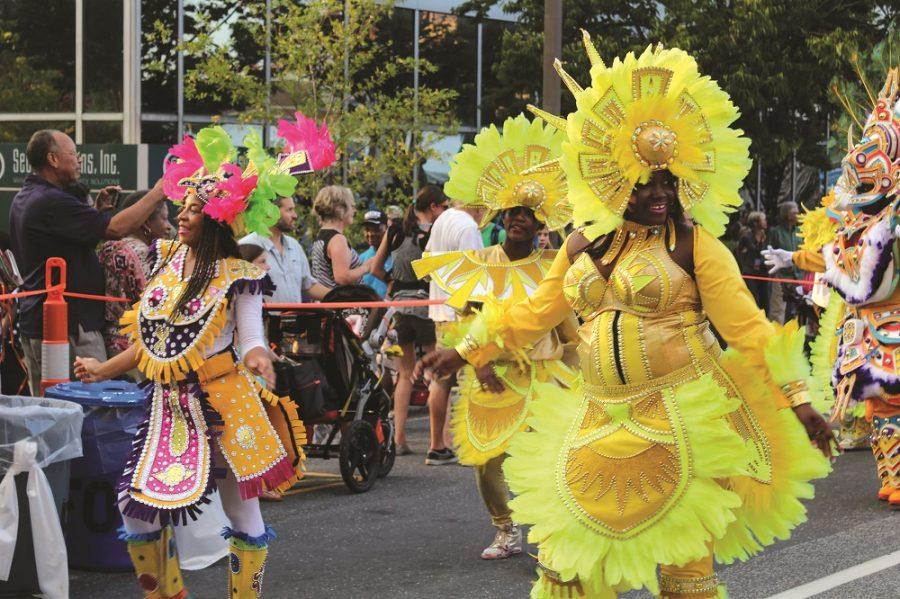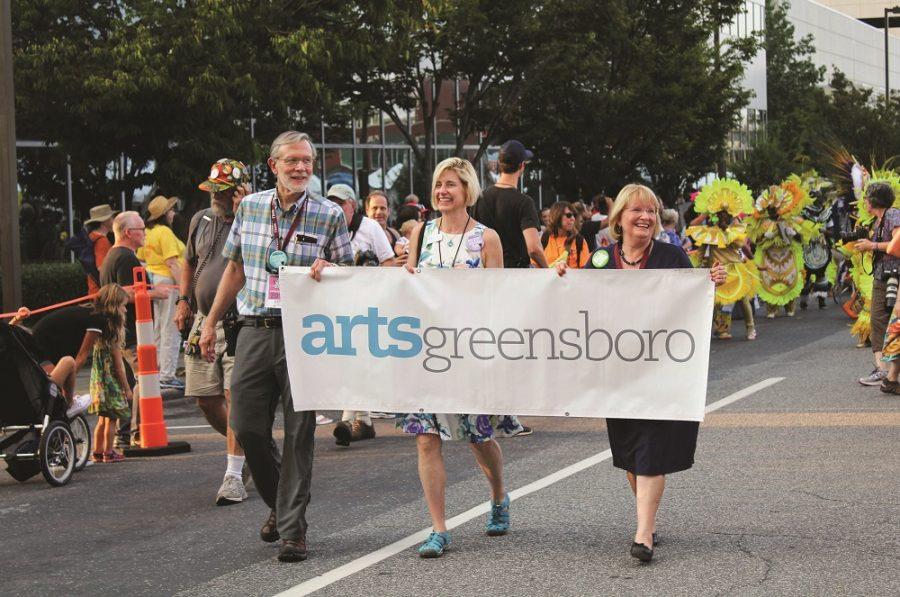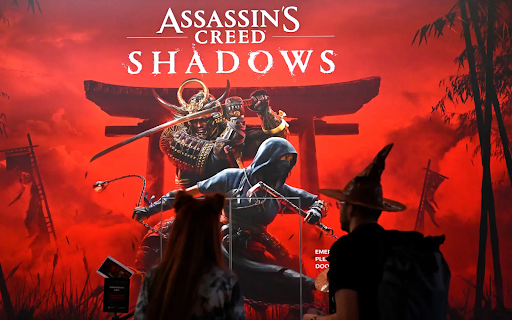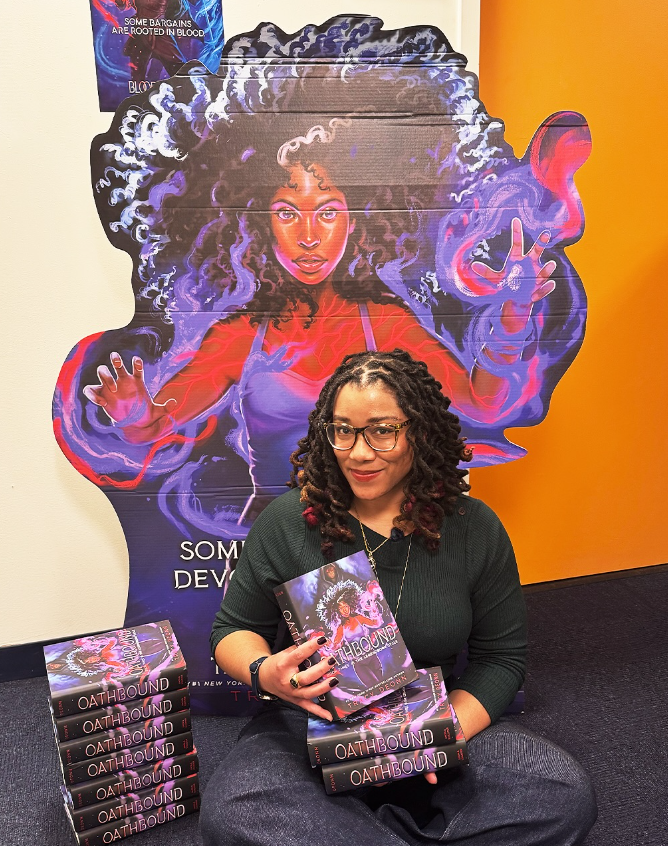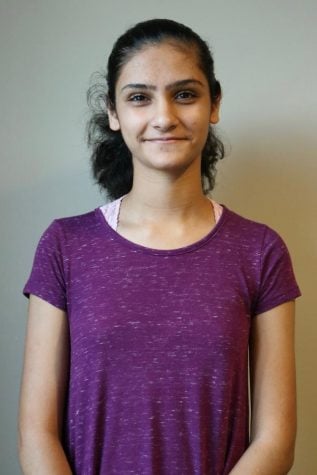Imagine traditional Rwandan dancing, extreme jump rope routines, hula, kosher gospel and bluegrass happening all at the same time.
From last Friday evening to Sunday night, cultures from all over the globe were celebrated in the massive musical extravaganza known as the 76th National Folk Festival.
The event took place in downtown Greensboro, marking the festival’s second year of being hosted in Greensboro. After a competitive selection process that considered over 32 cities for the location of the annual festival, Greensboro was chosen to host for a three-year period.
With a budget of over a million dollars, the event attracted visitors from all over the United States. Musical performances and exhibits from rockabilly to Pacific Island cultures could be found within the eight connected locations of the festival.
The behind-the-scenes work of organizers and volunteers was evident in this array of exhibitions during the huge festival. Volunteers in distinct yellow shirts were found scattered all through Lebauer Park at general information stands, first aid stations and whatever structures demanded their attention.
“One thousand volunteers for about 1,500 shifts,” said volunteer coordinator Tonya Carter to TWC News.
By the numbers, it is clear that many volunteers took multiple shifts to make the event a reality.
“I know a lot of the people in the organization, and they do a lot of work for the city,” said Associate Professor of Foreign Languages and festival performer host Alfonso Abad Mancheno.
As a volunteer, he has dedicated approximately twelve hours in the three days to helping the performers he was assigned to host.
“It was humbling to see how the musicians came and performed at the festival and then left again to tour,” said Mancheno, after hosting Latin Grammy award winners in the past.
For many, the festival means fun, community and exploration.
“[The festival] has given me a chance to see the diverse crowd in the community,” said Lisa Jones, an attendee. “Meeting these new people has been my favorite part”.
“The festival offered music and dances from lots of cultures that I wouldn’t have gotten to see otherwise,” said first-time visitor Katherine Marsh.
Family-friendly activities, crowds, vendors and diverse booths completed the cultural carnival and this socially appealing image.
“It was a really fun experience,” said Sharanya Ananth, Early College junior and Indian classical music performer at the festival. “The audience was really diverse, and everyone was super appreciative of the music.”
For others, the festival carried a deeper meaning.
On a stage based on ancient traditions from Tibet, Tsering Wangmo Dhompa, the first Tibetan female poet to be published in English, described the hardships her culture was facing under the towering influence of China.
“The culture (of Tibet) is disappearing, people are becoming (a) minority,” said Wangmo. “The culture is becoming suppressed.”
Wangmo was at the festival as the artistic director of the group Chaksam-pa, a group with four generations of artists from various American cities with thriving Tibetan communities.
DJ Grandmaster Flash, a hip-hop icon and pioneer, was an especially anticipated act. To stand against modern forces clashing with his 1970’s original hip-hop works and style, the legend claimed he wanted to represent those who “did so much for so little, and the world needs to know.”
Modern influences pushing against traditions was a theme throughout the performances, whether it was the large crowd the flea circus drew or the discussion about the secrecy of hula throughout the invasion of Hawaii. In the sea of a modern popular culture-based society, the festival was a small temporary island of folk arts and tradition.
“It’s just an eye-opener for culture,” said Mancheno. “I want my students to learn from that.”
These eye-opening lessons were sprinkled all over the festival, such as the one Wangmo phrased beautifully, “Tibet’s problem is everyone’s problem.”
Performers such as Dock Rmah from Vietnam, the International Community Mass Choir and the Sudanese Refugees Community of N.C. all came from unique backgrounds with stories of their cultures to share through the stage. Global connectedness resonated outstandingly as one of the festival’s primary messages.
“We are thankful to the festival for giving us a voice,” said Wangmo.

